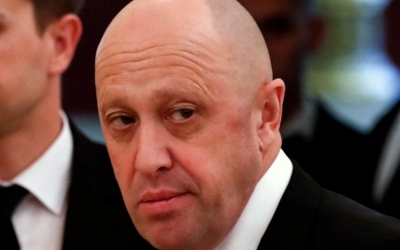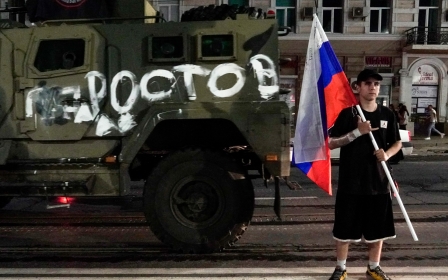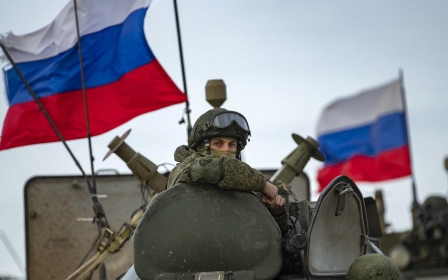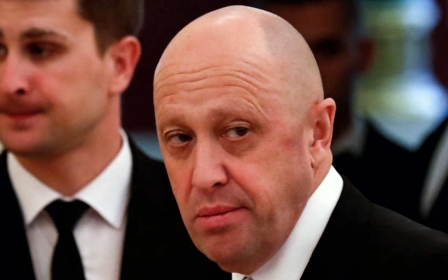Wagner rebellion leaves Prigozhin and Putin scrambling for influence in Africa
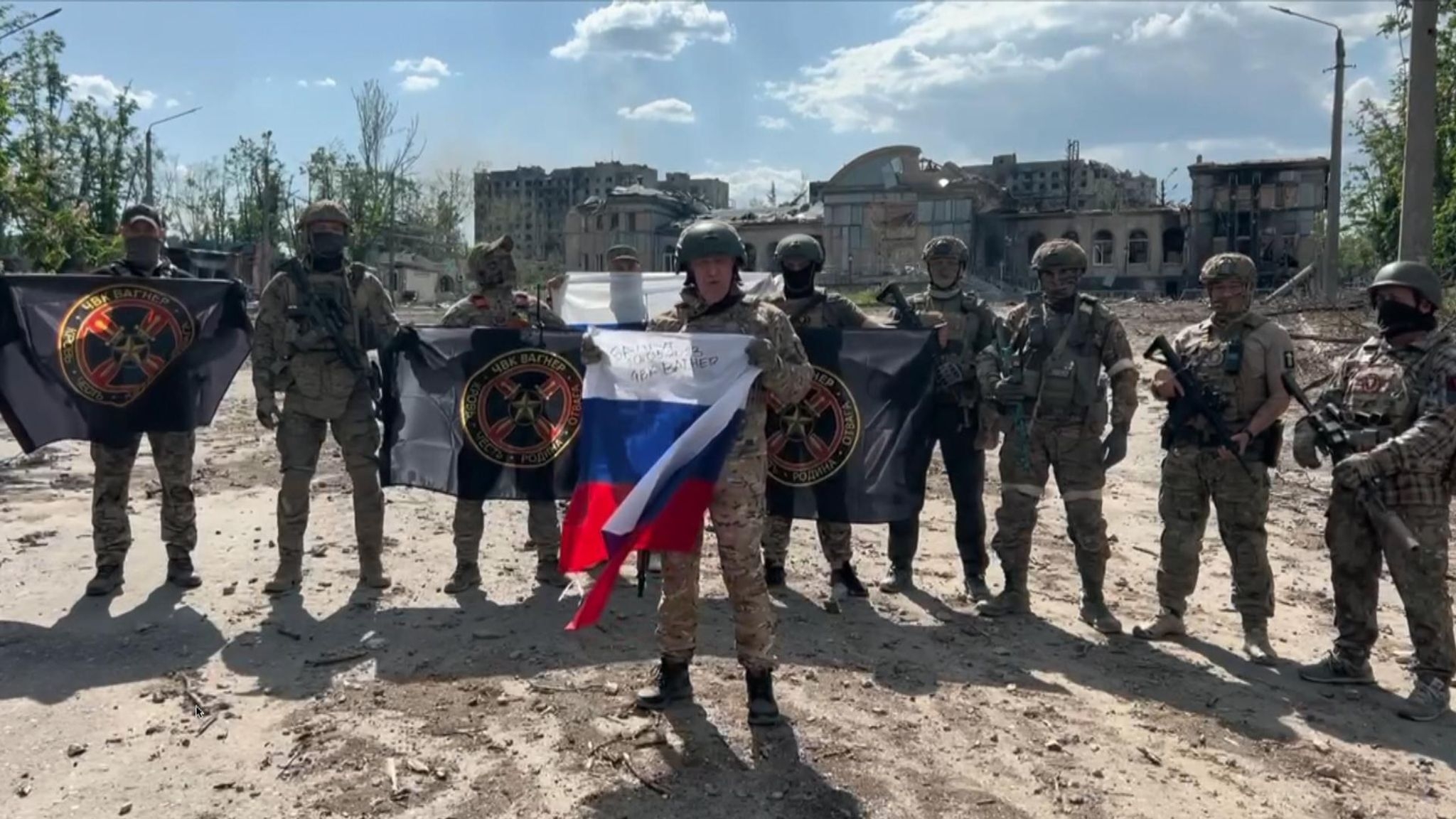
For years the Wagner Group, a private military company (PMC) based in Russia, has been making significant inroads into Africa, becoming an important vehicle for Moscow’s strategic reach into the continent.
Established by Russian businessman Yevgeny Prigozhin, who until recently was known for his close ties to the Kremlin, the Wagner Group gained notoriety for its covert military operations, and expansive trade in mining and weapons procurements.
But following the failure of the mercenary group's armed mutiny over the weekend - that came within 200km of Moscow - its influence in the region hangs in the balance.
Despite Russian President Vladimir Putin giving the appearance over the weekend that Wagner would be disbanded, Russian journalist, Dmitry Nizovtsev, said that the PMC is still recruiting people and still operating from Russia.
“Rationally speaking I think it would make sense to leave them untouched because everyone is gaining from the current setup, whereby Wagner is self-funding, it's advancing indirectly Russian interest, [Moscow's] access to resources and it's a very important and powerful tool of Russian statecraft,” Andreas Krieg, associate professor of security studies at King's College London, told Middle East Eye.
That will now all depend on whether Putin believes that the personal threat from Wagner - and particularly Prigozhin - has been neutralised or not.
For African leaders like the Central African Republic (CAR) President Faustin Archange Touadera and Libya's eastern renegade military commander turned warlord Khalifa Haftar, Wagner’s fate is now interwoven with theirs.
Both men owe their survival in part to Wagner’s mercenaries, their weapons and the training they provide to their respective forces.
By outsourcing its operations to Wagner in Africa, Russia was able to cheaply and quickly expand its influence into Libya, Syria, Sudan, United Arab Emirates, Mali, and the CAR.
That Prigozhin was able to march his forces towards Moscow suggests that he still commands the loyalty of his men, which he cultivated very visibly over the last year by visiting the front lines of the war in Ukraine.
Russia's influence over Wagner
And while Wanger has withdrawn its forces from Ukraine, the picture in Africa is yet to be decided.
“I would also say that the Russian state has only very limited influence over the networks that Wagner has created in Africa. And the number one reason behind that is that they have an independent logistical and financial infrastructure they set up via the UAE,” added Krieg.
The UAE provided Wagner with a bridgehead in Africa in 2018 that allowed the group to establish itself in other regional states.
Since then, billions of dollars worth of gold have allegedly made their way from Africa to the UAE, much of which is thought to have been facilitated by Wagner.
The UAE has an interest in keeping Wagner afloat said Krieg, adding that the “game changer" would be if Putin called UAE President Mohammed bin Zayed Al Nahyan and asked him to clamp down on the Wagner-affiliated companies based in the UAE.
In addition, much of Wagner’s strength lies in its decentralised nature. In each country that the group operates, it is largely financially self-sufficient - even in cash-poor countries like the CAR and Sudan, where the PMC can be paid in resource concessions, said Krieg.
Russia’s Foreign Minister Sergey Lavrov was quick to reassure African states over the weekend that Wagner’s operations “would continue".
In an interview with the Russian-backed broadcaster RT, Lavrov was bullish about the group's presence in the continent.
“At their request, several hundred servicemen are working in the CAR as instructors - this work, of course, will continue… Both the CAR and Mali appealed to the Wagner PMCs with a request to ensure the safety of their leadership,” said Lavrov.
Wagner’s evolution in Africa is unlikely to be as dramatic as its fate in its home country - especially as replacing the well-entrenched group could end up backfiring on Moscow
“It would be very difficult for another Russian institution to take over and replace Wagner personnel overnight. Wagner's operatives have critical on-the-ground knowledge and expertise in Africa,” said John Lechner, an expert on the CAR, Libya and Wagner.
Wagner and Prigozhin have shown that they are not merely conduits of Russian ideas, influence and strategy, but that they are also strongly ideological and independently minded, willing to break with Moscow under the right circumstances.
“We also have to remember that foreign policy is both top-down and bottom-up, and Wagner has also been particularly effective in forming what Moscow's interests in Africa are,” Lechner told MEE.
Tensions on Russia’s Africa strategy have already been laid bare by Prigozhin himself as the rebellion unfolded on Saturday.
"We were told that Africa was needed, and after that, it was abandoned because all the money that was intended for aid was stolen," Prigozhin said.
According to French diplomatic sources, Wagner wanted more equipment to continue its activities in the continent but their request was rebuffed by Moscow.
Alternatives to Wagner
Putin has given Wagner’s contractors the option to sign-up with the Russian Ministry of Defence or go to Belarus and follow their leader Prigozhin.
An easy enough choice for contractors already in Russia. But in Africa, Moscow may find that the options are less clear-cut.
“Not all Wagner groups operating in Africa will want to move to the Ministry of Defence, since most likely the pay in the Ministry of Defence may be much lower,” said Kirill Semenov, a non-resident expert with the Russian International Affairs Council.
If a paranoid Putin views Wagner as an existential threat, the group could splinter into a kaleidoscope of different groups.
“It cannot be ruled out that some kind of alternative PMC will be created, which will be led by private individuals whose reputation has not been damaged, and Africa will be in the sphere of interests of this PMC,” Semenov said.
Wagner’s operations could conceivably be taken over by other PMCs that are already legally operating in Russia and more directly aligned with the Kremlin, such as the RSB-Group or the Russian oil giant Gazprom's own PMC.
While Semenov says alternative PMCs could fill the void left by Wagner, the Ministry of Defence may also try to act more directly.
However, the role Prigozhin is set to play remains an open question - without knowing the full details of the deal he struck with the Kremlin.
Middle East Eye propose une couverture et une analyse indépendantes et incomparables du Moyen-Orient, de l’Afrique du Nord et d’autres régions du monde. Pour en savoir plus sur la reprise de ce contenu et les frais qui s’appliquent, veuillez remplir ce formulaire [en anglais]. Pour en savoir plus sur MEE, cliquez ici [en anglais].


